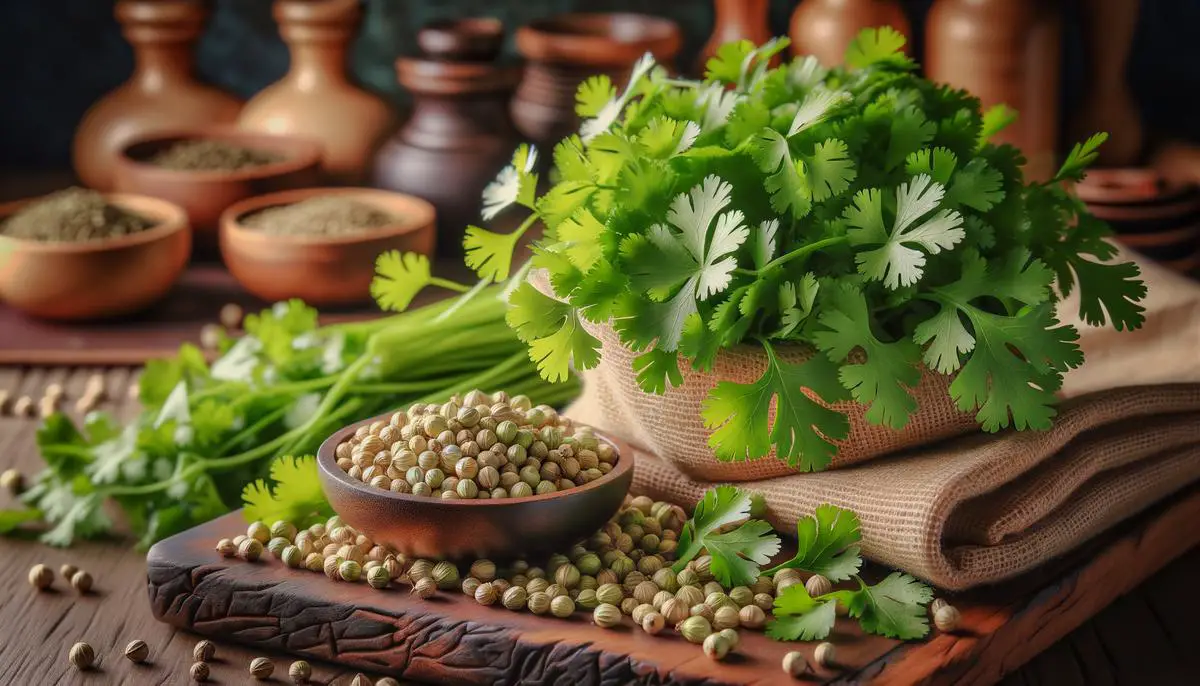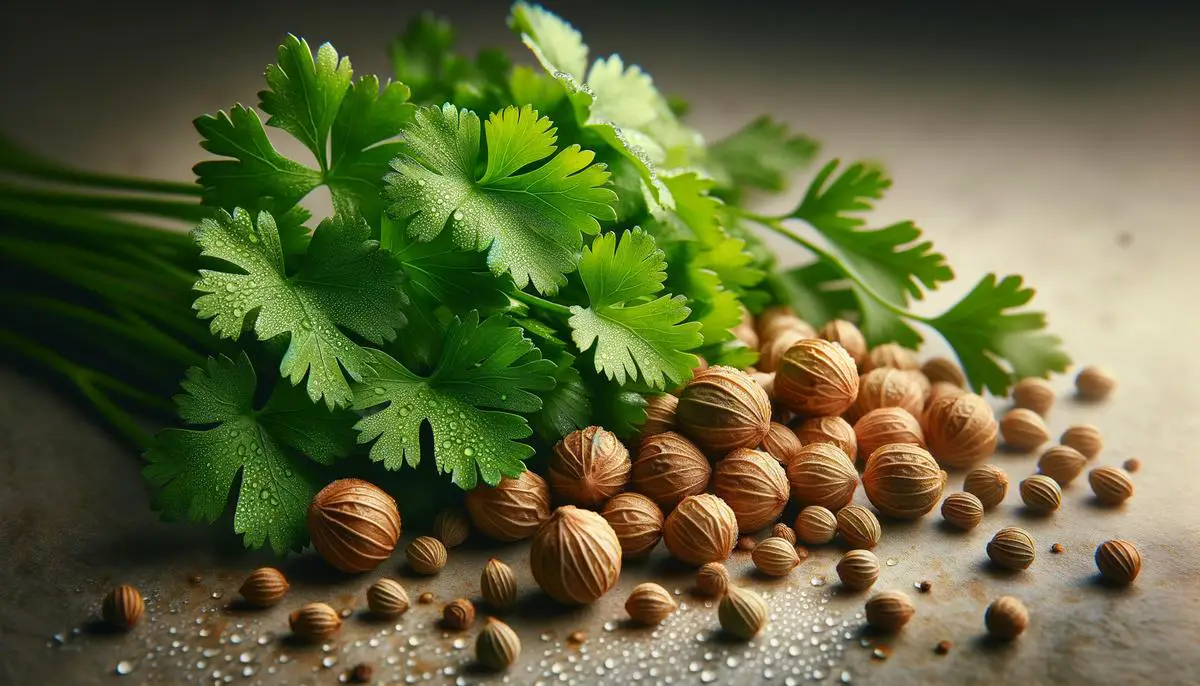
Coriander, widely recognized for its distinctive taste and aroma, serves as a cornerstone in kitchens around the world. This herb, with its dual-purpose leaves and seeds, not only enriches a wide array of dishes but also brings forth a myriad of health benefits. By exploring the multifaceted uses and advantages of coriander, we unveil its significant impact on culinary traditions and individual health, highlighting its enduring relevance in both domains.
Culinary Uses of Coriander
Coriander, often known as cilantro, is a herbaceous plant whose leaves and dried seeds have infiltrated the culinary traditions of various cultures across the globe, serving as a versatile ingredient that transcends geographical and gastronomical boundaries. In its fresh form, the leaves bring a vibrant, citrusy flavor that brightens dishes, making it a staple in the fresh salsas of Mexico, the fragrant curries of India, and the aromatic salads of Southeast Asia. The seeds, with their warm, nutty, and slightly citrus-like flavor, become an integral spice in spice mixes and a key component in flavoring meats and vegetables, showcasing coriander’s dual character in enhancing the complexity of flavors within a dish.
The use of coriander in global cuisine exemplifies the herb’s ability to adapt and meld into various cooking styles while maintaining its distinct characteristics. For instance, in Mediterranean cooking, coriander seeds are ground into soups and stews, subtly infusing their warm essence into the heart of the dish. Meanwhile, the Middle Eastern culinary tradition incorporates both the leaves and seeds into their rich, flavorful tagines and kebabs, highlighting coriander’s duality in use and taste. This culinary crossover underscores not only the herb’s versatility but its role in bridging diverse flavor profiles, making it indispensable in kitchens around the world. Through its unique taste and aroma, coriander has become a symbol of the way food incorporates different cultural influences, creating a shared language of flavors that resonates globally.

Health Benefits of Coriander
Beyond its culinary prowess, coriander steps forward as a super herb owing to its dense nutritional profile and a rich history of medicinal use. This herb is not just a flavor enhancer but a powerhouse of health benefits. Loaded with essential vitamins and minerals, coriander offers a considerable supply of Vitamin C, Vitamin K, and folate. Furthermore, it has been extensively studied for its antioxidant properties, thanks to its high content of quercetin, an antioxidant that can help in combating inflammation and reducing the risk of various diseases. This aspect is crucial, especially in today’s fast-paced world where diets often lack sufficient nutrients, making coriander an easy addition to meals for an extra health boost.
Historically, coriander has been more than just a culinary herb; it has been valued in traditional medicine across various cultures for its therapeutic properties. It has been used in natural remedies to alleviate digestive problems, including bloating, discomfort, and irregular bowel movements. Some studies suggest that the oils present in coriander seeds can accelerate and ease digestion, making it a go-to herbal remedy for promoting gut health. Another notable use is in managing blood sugar levels, where coriander seeds have shown potential in stimulating insulin secretion and lowering blood sugar levels, making it a beneficial herb for people with diabetes or those at risk. Such multifaceted benefits, grounded in both nutritional science and traditional practices, underscore why coriander truly deserves the title of a super herb, amplifying its indispensability in both kitchen pantries and natural medicine cabinets.

Through its global culinary applications and profound health benefits, coriander cements its status as an invaluable herb in both the kitchen and holistic health practices. Its ability to meld seamlessly into various dishes while offering a boost of essential nutrients exemplifies the herb’s unparalleled versatility. As we reflect on coriander’s contributions to both our palates and well-being, it’s clear that this humble herb plays a pivotal role in shaping dietary habits and enhancing the richness of global cuisines. Coriander, with its deep cultural roots and broad applications, symbolizes the harmonious blend of flavor and health, ensuring its place in culinary traditions and health regimens for generations to come.



